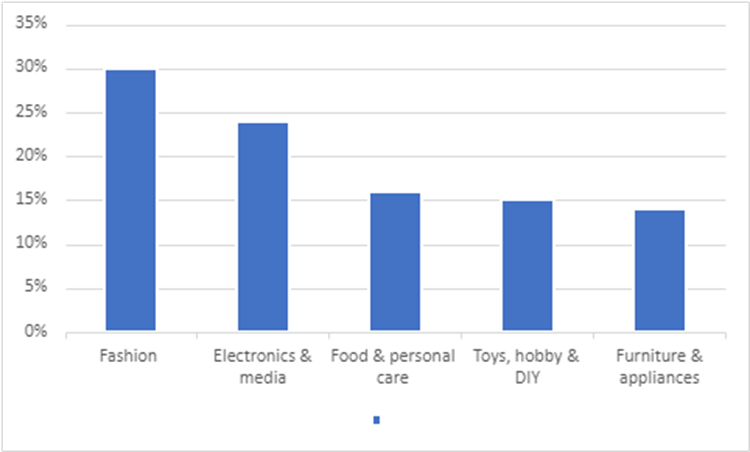Look out for the silver lining in the cloud, they say. This has turned true in the case of Indonesian ecommerce sector. The pandemic has been a blessing in disguise for South-east Asia, especially Indonesia, as it has forced a lot of MSMEs (Micro, Small and Medium Enterprises) to opt for online platforms.
Indonesia’s Ministry of Cooperatives and SMEs cited that the number of small and medium enterprises using online portals had increased to 10.2 million during the pandemic in 2020. Essential commodities, groceries, and takeaway food were the most ordered products during the lockdown. Customers are now looking for more online options in various categories, while enterprises are vouching for greater order value and enhanced engagement in the process.
A Close Look at the Stats of Ecommerce in Indonesia
In 2020, Indonesia became the 11th largest market for ecommerce with a revenue of US$ 33 billion. Apparently, 44% of the Indonesian populace have purchased at least one product online during the pandemic. It is expected that there will be 160% growth in the coming 5 years with GMV (Gross Merchandise Value) projected at 83 billion US$. It is evident that revenues will continue to increase, new markets will be up and open for many products and industries, and existing markets can grow in potential.
There are five main sectors that have been identified by EcommerceDB as emerging ecommerce markets in Indonesia.

Challenges in Online Retail Growth in Indonesia
Before diving into the future of ecommerce in Indonesia, there are a few hiccups on the pathway to growth in this region that we need to look at. Below are a few challenges that are keeping the growth from reaching its full potential.
- Infrastructure
- Geography
- Payments
- Telecoms
- Distinct cultures
Transportation is still a major issue as the roads are not fully paved throughout the country. Of course, the situation has improved a lot in recent years, but it is not sufficient. This restricts the kind of vehicles used for deliveries, especially during monsoons.
Even when the package arrives on a particular island, it is still a hassle due to inconsistent, incomplete and inaccurate addressing. Big cities like Jakarta have different issues like congestion and traffic jams that last for hours. These problems can damage the delivery schedules altogether.
Motorcycles are the best option for delivering smaller goods and getting delivery information in the mailbox is another way of mitigating logistical and infrastructure issues.
Indonesia has a population of around 270 million, spread across more than 6000 separate inhabited islands. Monitoring and management of delivery across the country is a huge logistical challenge for ecommerce enterprises, particularly when we talk about product returns and delivery of perishable groceries. Moreover, the identified issues are not confined to whether companies have access to a sufficiently expansive network of delivery vehicles, boats, or aircraft.
Ownership of credit cards is still low in Indonesia. The penetration rate of credit cards is low because majority of the population haven’t adopted the ever-changing “structured” financial services. Another challenge is the uneven internet connectivity throughout the country.
The instant solution they have figured out as of now is payment-on-delivery which seems apt, considering the given situation.
According to Mobile Connectivity Index, Indonesia is still in the growing phase as far as mobile network availability and connectivity is concerned. But a significant percentage of people do not use smart phones and internet speed is also an issue. This is a deterrent for people when opting for online transactions.
In spite of these issues, mobile commerce in Indonesia seems to have gained a foothold, as a huge amount of the region’s online purchases take place from dedicated mobile shopping apps.
Cultural diversity plays a predominant role in almost all South-east Asian countries including Indonesia. The international impact can be felt in certain sectors but a large section of people still abide by their cultural practices. Religious diversity is considered seriously by retailers, especially the food, beauty and fashion preferences of Muslim consumers. To add to this, there is a diversification of languages within the country too. Retailers need to consider both language and culture variance while developing and distributing their products or services online.
The good part is that people are aware of the platforms and are actively using voice commands and voice search for online shopping.
It is essential that retailers gain the consumer’s trust when they venture into a new region. They can create awareness about their product through omnichannel marketing strategies, discounts and promotions.
The Future of Ecommerce in Indonesia
Irrespective of the challenges mentioned above, there are a few companies in Indonesia who have unearthed opportunities to scale bigger and better.
Start-ups are on the rise in the region. Local companies are coming up with innovative and successful solutions to their “local” problems. Grab and Gojek are such “super-apps”. These two apps have paved the way for many other small and medium sized companies to take the ecommerce route and thrive.
There is a tremendous scope for innovation in ecommerce ‘support’ industries, too. There is also a buzz in the payment sector like distributed payment solutions and other payment gateway solutions based on the industry-type.
Logistic challenges can be overcome by drone deliveries. Maybe not immediately, but in the near future, given the complexity of the topography and geography of the region.
Conclusion
The good news is that the Government is improving regulatory certainty, customer security and data protection to fortify ecommerce in Indonesia. The tech-savvy country is also ready to welcome new technology companies and strengthen their place in the world market. This is the perfect time for retailers to reinforce their online strategies and ride the ecommerce wave in Indonesia.
Are you a retail business, looking to ramp up online operations in Indonesia? Reach out to our digital commerce champions to discover your growth potential in the market and chart out an elaborate omnichannel commerce strategy. Our team can be contacted at sales@embitel.com.





